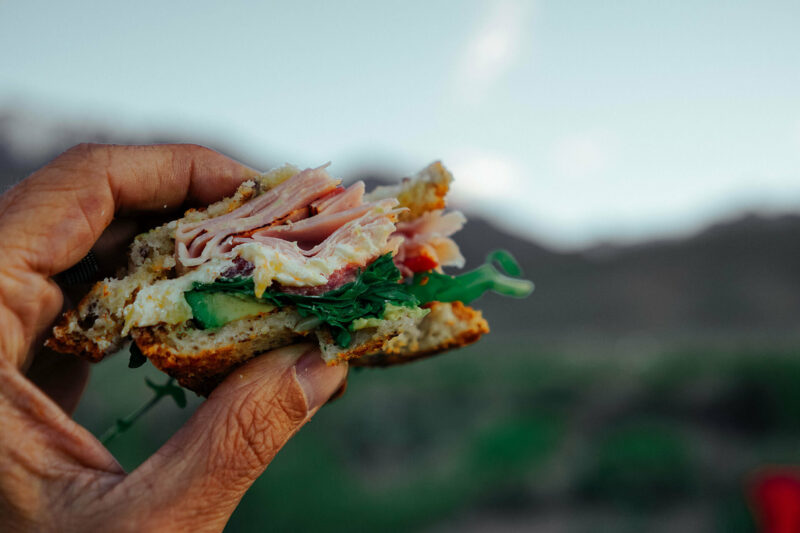Essentialism
To discern what is truly essential we need space to think, time to look and listen, permission to play, wisdom to sleep, and the discipline to apply highly selective criteria to the choices we make.” —Greg Mckeown
What is essential to you? If you’re able to identify the essential, are you living a lifestyle that supports and prioritizes what you’ve deemed crucial? In Greg Mckeown’s book, Essentialism: The Disciplined Pursuit of Less, Greg shares the importance of choice, and how to use choice to regain control of your life. Essentialism, at it’s core, is a close cousin to Minimalism, but with a stronger emphasis on editing down choices and distractions in order to accomplish, and prioritize, what is important in your individual life. It isn’t about strictly following a mantra of less (while that in and of itself is admirable and necessary in today’s culture of more), rather the pursuit of less—but better. The book is both a guide for your personal and business life.
Essentialism is not about how to get more things done; it’s about how to get the right things done. It doesn’t mean just doing less for the sake of less either. It is about making the wisest possible investment of your time and energy in order to operate at our highest point of contribution by doing only what is essential.
In many respects, the book is about following your purpose. It isn’t a guide on how to find it, but rather how to make the choices that create a lifestyle in which you can pursue it with less distraction and restraint. The core message Greg communicates is the importance of allowing ourselves to craft a life that supports an ability for us to make our highest contribution to the world, and to the things that matter most to us. By working and living with our highest contribution as the foundation of our actions, we can live more meaningful lives. To live meaningful lives we must place value on our personal needs and desires, and set aside time to invest in ourselves. The seemingly selfish actions of meeting our own needs is often the root of becoming selfless.
The best asset we have for making a contribution to the world is ourselves. If we underinvest in ourselves, and by that I mean our minds, our bodies, and our spirits, we damage the very tool we need to make our highest contribution.
Most of us today feel we need to do it all, and have it all. This is the predominant drive of our culture. Our survival instinct has become less life and death, and more, how do we compare amongst our peers. Our increasing concern is how we’re seen in the eyes of the masses, and those closest to us. We feel the need to say Yes for fear that a No will have negative consequences on our work and/or personal relationships. Our choices, then, are largely based on how we are viewed and how it makes others feel, rather than how it makes us feel. We do not consider the negative impact too many Yeses may have on our physical, mental, and spiritual well-being. Often we take on more than we can manage, or we take on things that go against our true nature. Saying yes to everything leaves us unable to fulfill our highest potential and often leaves us emotionally and physically drained. A significant portion of the book is dedicated to the art of saying No, offering tips on how to do so with a positive spin to protect your relationships, and more importantly to protect oneself.
…only once you give yourself permission to stop trying to do it all, to stop saying yes to everyone, can you make your highest contribution towards the things that really matter.
Early in the book Greg shares his vision, his purpose with his work. It resonated with me. Though I contemplate often on how this manifests itself in the work I do, it inspires me to continue using what talents I have to do better, while pursuing less.
I have a vision of people everywhere having the courage to live a life true to themselves instead of the life others expect of them. I have a vision of everyone—children, students, mothers, fathers, employees, managers, executives, world leaders—learning to better tap into more of their intelligence, capability, resourcefulness, and initiative to live more meaningful lives. I have a vision of all these people courageously doing what they came here on this earth to do.
The book is very thorough, including exercises and stories on how one implements, and lives, the way of the Essentialist. Crafting what Greg labels an Essential Intent is one important element, for both your personal life and business. An Essential Intent is similar to a purpose that guides your actions but it is less an all-encompassing generic statement and more a concrete, meaningful and measurable mission. Greg wants us to create an intent that is inspiring but also planted in reality. When you need to make a decision, your Essential Intent should help you eliminate choices and guide your path.
When there is a lack of clarity, people waste time and energy on the trivial many. When they have sufficient levels of clarity, they are capable of greater breakthroughs and innovations—greater than people even realize they ought to have—in those areas that are truly vital.
Full of insights and guidance, Essentialism: The Disciplined Pursuit of Less, is a practical guide for those looking for the courage and permission to live a more meaningful life that aligns with their true calling.Essentialism is living the 80/20 rule but increasing—and decreasing—to 90/10. It suggests we prioritize with the 10% and in essence eliminate the 90%.

